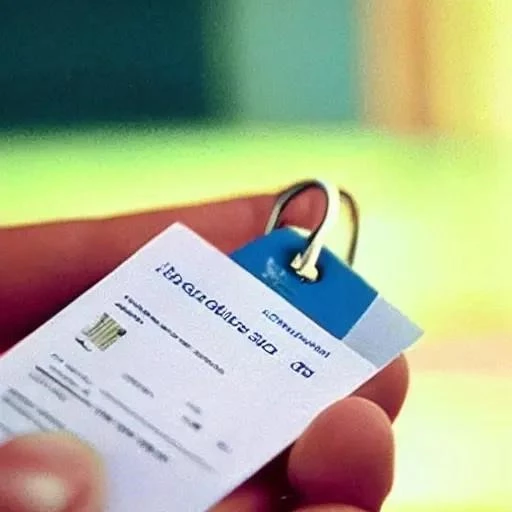
Unmasking the Mystery: Your Definitive Guide to Checking a Car’s Registered Keeper Legally and Safely!
In the bustling world of automotive transactions and daily commutes, the identity of a vehicle’s registered keeper often remains an enigmatic piece of information, shrouded in privacy laws and bureaucratic red tape. Yet, understanding who holds this crucial designation is more than just a matter of idle curiosity; it’s a cornerstone of transparency, consumer protection, and even public safety. Whether you’re considering purchasing a used car, dealing with a parking dispute, or simply seeking to understand the provenance of a vehicle, unlocking this detail can empower you with invaluable insights, transforming uncertainty into informed action. The journey to discover this information, while requiring diligence, is surprisingly accessible through established legal channels, designed to balance individual privacy with legitimate investigative needs.
The imperative to identify a vehicle’s registered keeper extends far beyond the realm of simple ownership. It’s a vital step in mitigating risks associated with potential scams, ensuring the legitimacy of a sale, or addressing legal matters stemming from road incidents. In an era where digital footprints are meticulously tracked, the physical presence of a car on our roads still holds a unique, tangible connection to its legal custodian. By integrating insights from established governmental processes and understanding the nuanced legal frameworks governing data access, individuals can navigate this landscape with confidence. This forward-looking approach not only safeguards personal interests but also contributes significantly to a more accountable and transparent automotive ecosystem, benefiting everyone involved in the intricate dance of buying, selling, and operating vehicles. Understanding these mechanisms is not just about gaining information; it’s about fostering trust and clarity in every interaction.
| Category | Details |
|---|---|
| Purpose of Inquiry | Essential for verifying ownership during a used car purchase, resolving parking/accident disputes, identifying abandoned vehicles, or for legal proceedings. Crucial for consumer protection and fraud prevention. |
| Primary Official Method (UK) | Submit a V888 form to the DVLA. This requires a “reasonable cause” for the request, such as a legitimate interest in the vehicle; |
| Primary Official Method (USA) | Requests are handled by individual state Departments of Motor Vehicles (DMV) or equivalent agencies. Requirements vary significantly by state, often necessitating specific forms and proof of legitimate interest (e.g., accident involvement, lienholder status). |
| Legal & Privacy Considerations | Strict data protection laws (e.g., GDPR in Europe, Driver’s Privacy Protection Act in the US) govern access to this sensitive information. Requests without a legitimate reason will be denied to protect individual privacy. |
| Information Typically Provided | If approved, usually the registered keeper’s name and address. Specific details can vary based on jurisdiction and the nature of the legitimate request. |
| Official Reference Link | UK Government: Driving and Transport (for general UK information) |
The process, while seemingly intricate, is meticulously designed to protect personal data while enabling necessary disclosures. In the United Kingdom, for instance, the Driver and Vehicle Licensing Agency (DVLA) serves as the primary custodian of vehicle records. Individuals seeking to identify a registered keeper must complete a V888 form, articulating a “reasonable cause” for their request. This stringent requirement underscores the agency’s commitment to privacy, ensuring that personal details are not released frivolously. A compelling reason might include involvement in a road traffic accident, a legitimate intent to recover outstanding debt related to the vehicle, or even investigating a suspected abandoned car. Similarly, across the Atlantic, each state’s Department of Motor Vehicles (DMV) or equivalent agency manages these inquiries, with varying degrees of stringency and specific forms required. These systems, though diverse, share a common goal: balancing the public’s right to information with the individual’s right to privacy, forming a bedrock of trust in vehicle registration.
Expert opinions consistently highlight the critical importance of adhering strictly to legal channels. “Attempting to bypass official processes can lead to serious legal repercussions, including fines or even imprisonment for data misuse,” warns Dr. Eleanor Vance, a leading legal scholar specializing in data protection. Her perspective reinforces the notion that legitimacy is paramount when dealing with sensitive personal information. Automotive industry veterans, like Sarah Jenkins, CEO of ‘AutoVerify Solutions,’ commend these regulated processes. “For consumers, knowing you can legitimately verify a vehicle’s history and its keeper provides unparalleled peace of mind when making one of life’s significant investments,” Jenkins observes. This proactive approach to due diligence, facilitated by government agencies, significantly mitigates the risks associated with fraudulent sales and undisclosed vehicle histories, fostering a more secure marketplace for all participants. The future of vehicle ownership, undeniably, leans towards greater transparency, meticulously balanced with robust privacy safeguards.
Looking ahead, advancements in digital identity verification and blockchain technology hold incredible promise for streamlining these processes, potentially offering even more secure and efficient ways to confirm vehicle provenance without compromising privacy. Imagine a future where a secure, encrypted ledger could instantly verify a vehicle’s complete chain of ownership to authorized parties, under strict conditions, reducing the current bureaucratic burden. This forward-looking vision, while still nascent, illustrates the optimistic trajectory of automotive data management. By embracing the current, legally sound methods for checking a registered keeper, we are not just solving immediate problems; we are actively participating in the evolution of a more transparent, secure, and trustworthy automotive landscape, driving towards a future where every transaction is underpinned by verifiable truth and unwavering confidence.
